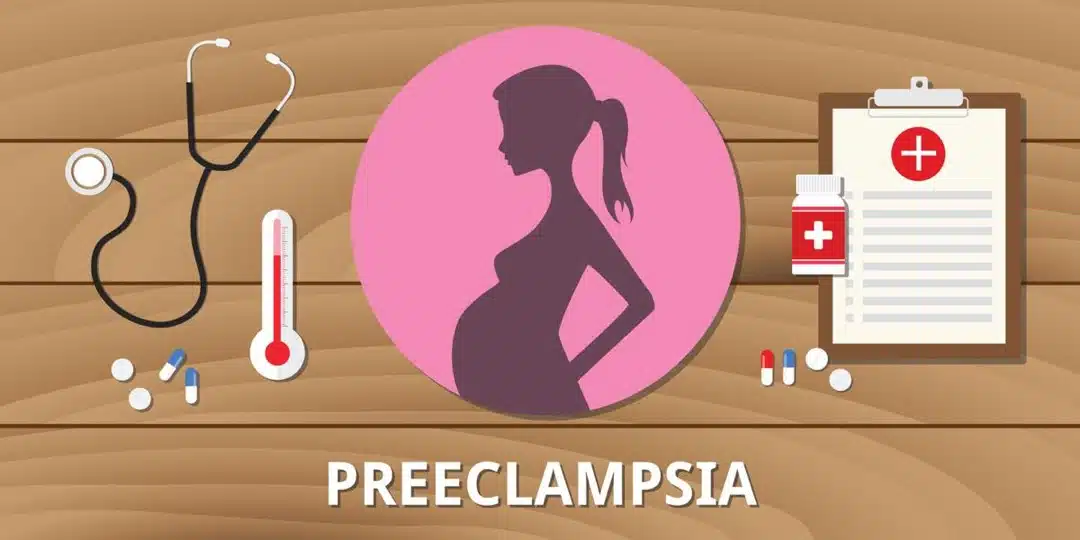
1403/05/10 11:40:42
Pre-eclampsia
Pre-eclampsia is a disease during pregnancy characterized by high blood pressure and organ damage, and its symptoms include swelling, sudden weight gain and headaches. Its exact cause is unknown, but genetics and obesity have an effect on its occurrence.

What factors increase the risk of developing preeclampsia?
- Chronic high blood pressure
- Obesity
- Twin or multiple pregnancies
- Family history of preeclampsia or having had preeclampsia in a previous pregnancy
- First-time pregnancy
- Age over 40
- Conditions like diabetes, lupus, or thrombophilia
- Pregnancy resulting from IVF
What complications can preeclampsia have?
- Fetal complications of preeclampsia
- Early detachment of the placenta
- Delayed fetal growth in the womb
- Premature birth
- Stillbirth
- Decreased amniotic fluid
- Maternal complications of preeclampsia
- Kidney or liver failure
- Stroke
- Seizures
- Severe lung complications (pulmonary edema)
- Increased risk of high blood pressure
- Coagulation disorders including low platelet count
When should you rush to the hospital?
- Persistent high blood pressure
- Swelling in the face or around the eyes, along with swelling in hands or sudden severe swelling in legs or ankles
- Severe or continuous headache, especially at the back of the head
- Visual changes, including double vision, blurred vision, seeing floaters, and severe sensitivity to light
- Severe pain or tenderness in the upper abdomen, particularly on the right side
- Nausea and vomiting
- Sudden weight gain of around 1.5 kg or more in a week
How is preeclampsia treated?
The mother may need to be hospitalized at least for an initial assessment and possibly for the rest of the pregnancy, where actions like regular blood pressure monitoring, lab tests, ultrasound, and fetal heart rate monitoring will be conducted. To prevent potential seizures, magnesium sulfate may be administered, and if the blood pressure is very high, antihypertensive medication should be prescribed.
If cleared by the doctor, the pregnant patient should do the following:
- Regular doctor visits at least twice a week
- Control weight and measure weight at set times
- Monitor fetal movements
- Get relative rest
- Follow a low-salt diet
What are the necessary actions after delivery?
The mother should be monitored in the hospital for at least 48 to 72 hours after the completion of magnesium sulfate infusion. If symptoms of severe preeclampsia improve, liver and kidney enzymes will be assessed, and she will be discharged, with a follow-up three days later.
If the mother is discharged on antihypertensive medication, blood pressure should be monitored daily for 10 days.
If high blood pressure or proteinuria persists after six weeks, the mother will be referred to an internist, cardiologist, or nephrologist.
If chest pain, headache, visual disturbances, or upper abdominal pain occurs, she should consult a specialist.
